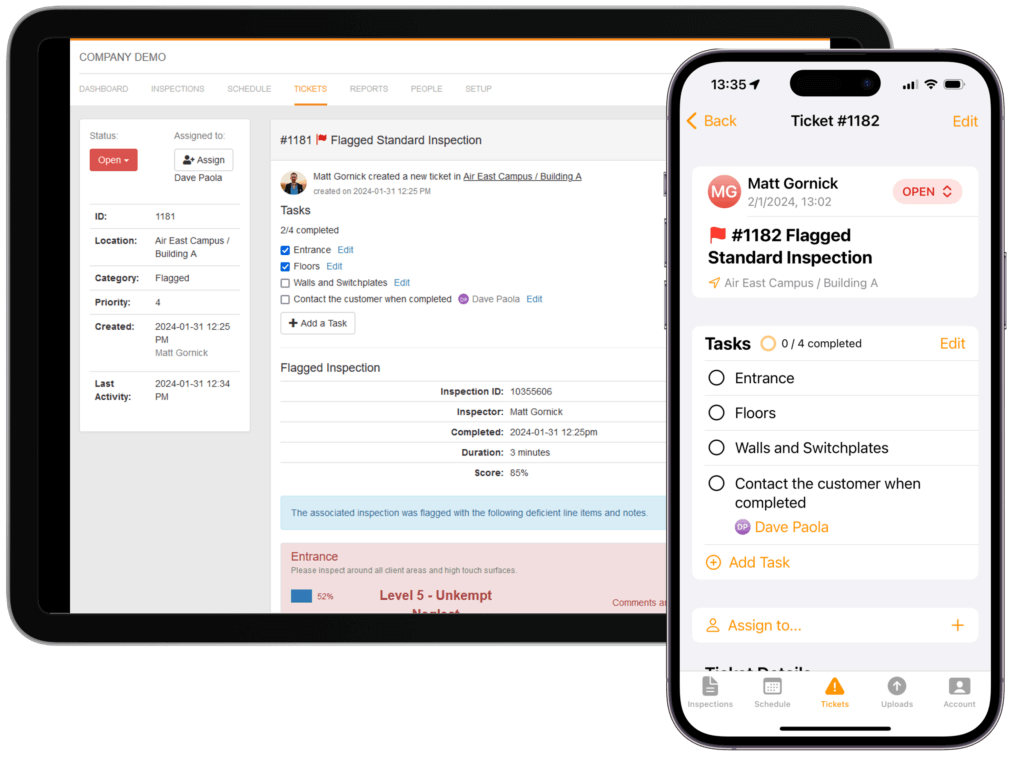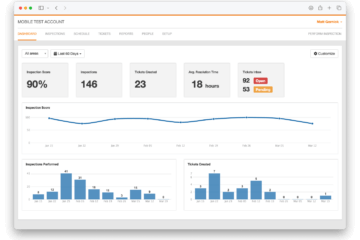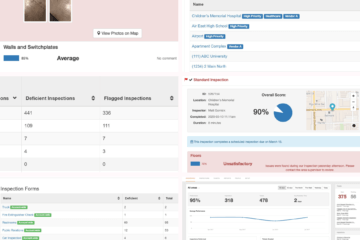When a problem at one of your sites needs to be fixed, what happens next?
Upholding the terms of your contract or service-level agreement (SLA) is crucial to your team’s success. The right communication makes that much easier.
Everyone on your team should be involved in addressing and correcting deficiencies. If possible, this should happen before your client or organization even notices something is wrong.
Here are some strategies to help your team sharpen communication and and correct inspection form deficiencies faster:
1. Clearly define deficiencies.
The definition of a line-item “deficiency” will depend on a number of factors, which might include:
- Your contract with the client or your organization’s expectations, as defined by your service-level agreement
- The standards of the facility you are contracted to manage
- Standards within your own industry, such as APPA for educational teams
Once you have established the definition of a deficiency with your team, it is important that inspectors all be on the same page. You will not get a complete picture of your team’s performance if one inspector rates the carpets in an office a 3 and another rates those same carpets a 4. Inconsistent scoring defeats the purpose of performing janitorial inspections. Make sure that everyone involved understands what is expected of them in order to get an accurate review of your company’s overall performance.
The cleaning and maintenance teams also need to be aware of what counts as deficient. Regularly reviewing inspection results with all team members is crucial for setting the right expectations for everyone. Photos from inspections can help with this; ask your inspectors to take pictures when line items are done particularly well, as well as when there are deficiencies.
2. Automate the process for corrective actions.
Automate the alert process as much as possible, rather than relying on your team to manually communicate each and every deficiency.
Inspection software and apps ensure that every inspection score, open ticket, and report is available for review in one place. That centrality creates a strong line of communication between managers and their teams. When everyone is on top of this data, you can catch and correct deficiencies well before they cause problems for your clients.
For example, when a line item is marked as deficient or flagged in OrangeQC, the system automatically opens up a ticket and notifies the right team members for that area. The ticket has a list of Ticket Tasks, or to-do items listing every line item that failed in the inspection. These can be assigned to people or teams and marked off as they’re corrected.

Inspectors can also include photos and videos of the problem areas, accompanied by notes informing your team what needs to be done to correct the issue.
This centralized system helps keep everyone on the same page about the work that needs to be done, who’s responsible for what, and what the status of the work is.
Paper tickets and work orders are notoriously difficult to corral into an organized system. One-off emails, calls, and texts introduce another step into the process and cause problems if someone is out sick or on vacation. A good inspection app, on the other hand, is accessible to every team member, no matter where they are.
3. Track deficiencies and corrective actions.
Tracking corrective actions, rather than just fixing things on the fly and moving on, gives you valuable insight into two metrics:
- How often corrective actions are required
- How long it takes deficiencies to be fixed
Having all of the inspection results, line-item deficiency notifications, and open ticket resolutions in one place provides your facility managers and clients with a valuable paper trail. If you notice in the reports that it is taking your team a long time to solve deficiencies, then you can ask them why this is the case.
Janitorial inspections are designed to hold everyone accountable. If you notice that resolutions to customer complaints or open tickets are taking too long, your team needs to know about that and adjust accordingly.
4. Communicate with cleaners and maintenance staff.
Good communication with the people doing the work of cleaning and maintenance will help you uphold your company’s standards. If you notice that scores in one area of the inspection form are repeatedly deficient, it gives you the opportunity to figure out why.
Ask yourself these questions if certain deficiencies become systemic:
- Does your team know what they need to do?
- Do they have enough time to complete tasks properly?
- Do you need to adjust the timing of cleaning or maintenance?
- Is your equipment sufficient? What about your cleaning supplies?
- Do you need to adjust your training procedures?
- Is the line item actually deficient, or do you need to review standards with your inspectors?
Make changes accordingly based on what you find.
5. Communicate customer complaints to your team.
Janitorial inspection forms are only as good as their settings. If you notice that customers are complaining about a deficiency that isn’t being flagged by your inspectors, then you know there is an issue with your standards.
Customer complaints are paramount and should be communicated with your team. The goal of inspections is to recognize deficiencies and correct them before the client recognizes the problem. If clients are unhappy with an aspect of the cleaning job that you are doing, your team needs to be made aware of it immediately.
You may need to adjust your standards and communicate those changes with your supervisors and inspectors if customers are issuing complaints that are not being noticed.
Additionally, be sure to close the loop with your customers. Let them know when issues are resolved. (Check out our interview with Environment Control Tucson to learn how they keep clients looped in on issue resolution.)
The bottom line? Be proactive.
Timely, effective communication will help you proactively resolve deficiencies, gauge the strengths and weaknesses of your organization, and uphold the terms of your SLA.
The key is to pay attention to these trends early. If you act quickly, before small issues snowball into larger ones, you’ll maintain a reputation for excellent quality.



